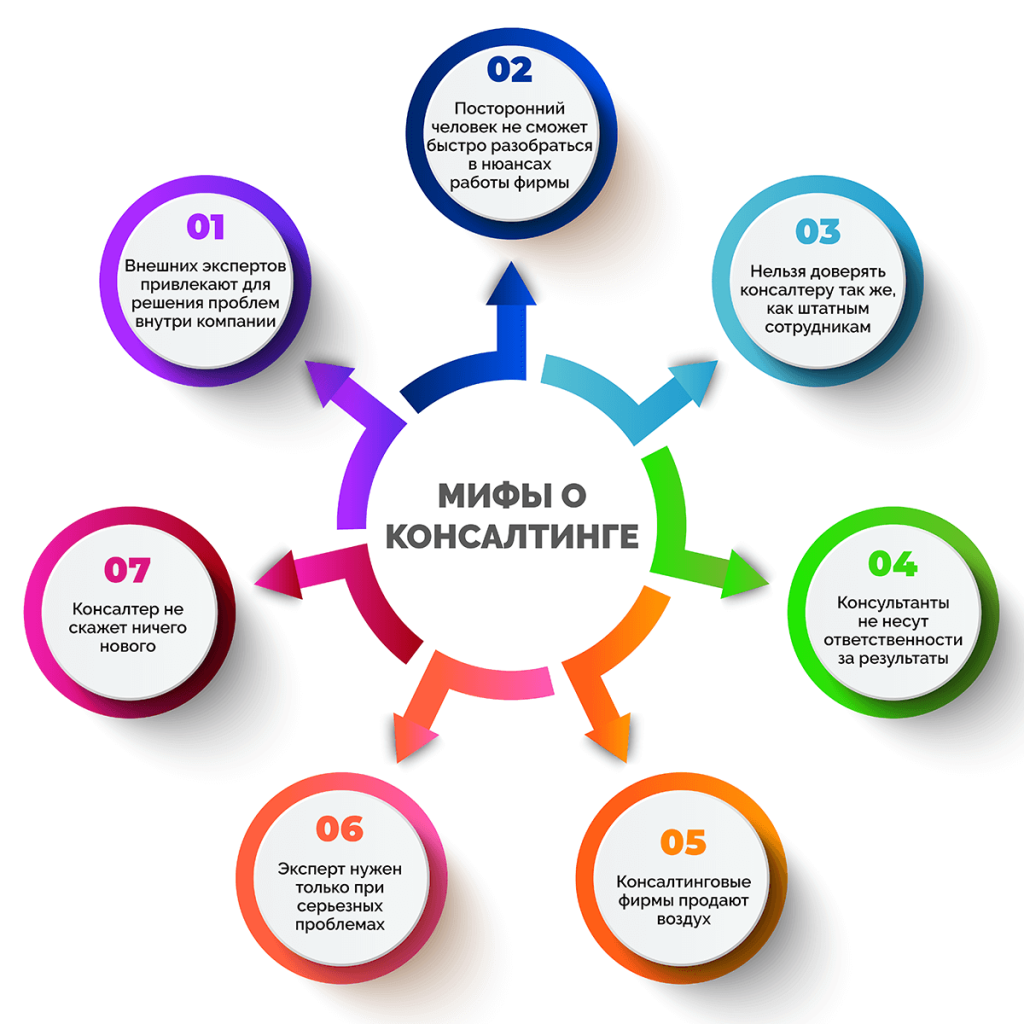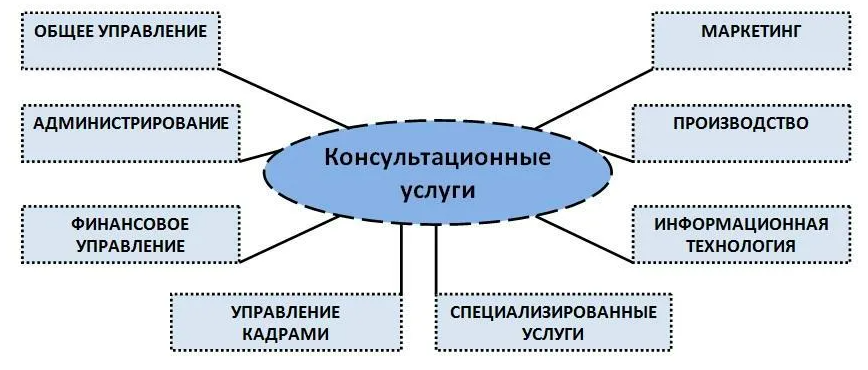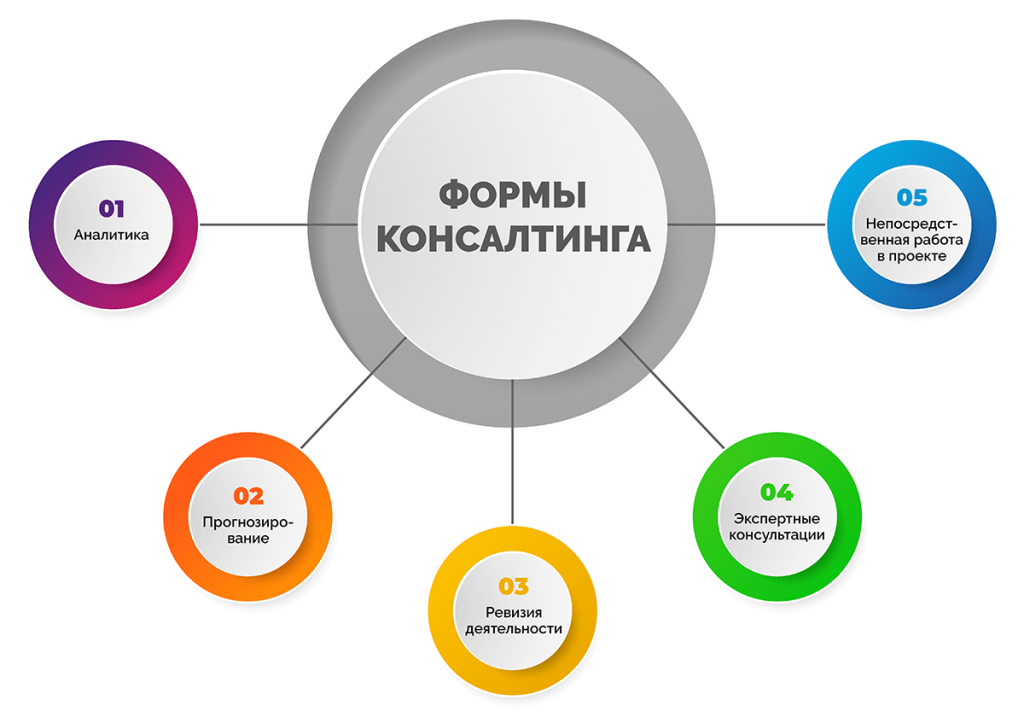In modern business, consulting is an integral part of strategic development and company success. It involves providing expert knowledge and advice on various aspects of business management and development. In this article, we'll explore what consulting is and what businesses can benefit from it.
In the business world, more and more organizations are turning to consultants to improve their performance. Consulting is the process of providing expert support.

What is consulting?
Consulting is a professional service provided by consultants with expertise in a specific field. They help companies solve complex problems, develop strategies, improve the efficiency of business processes, and achieve their goals. Consultants work closely with the company's management, analyze its current situation, and propose solutions that will help achieve the desired results.
Consultants work with clients, providing their knowledge, skills, and experience to help them succeed. They analyze situations, identify problems, and propose solutions, helping businesses achieve their goals and improve performance.
One of the advantages of working with consultants is that they possess expertise in their fields that a business might not have on its own. They also have extensive experience working with a variety of clients and can provide new ideas and perspectives for business development.
Consulting can be beneficial for different types of businesses across various industries. Whether you're a small business, a startup, or a large enterprise, consultants can assist you in various aspects of your operations.

Business Consulting: Improving Efficiency and Achieving Success
In today's dynamic and competitive business world, companies are looking for ways to improve their efficiency and achieve success. One such approach is to engage business consultants who offer expert advice and help develop strategies to achieve their goals.
Business consulting is a process that involves analyzing a company's current state, identifying problem areas, and developing solutions to address them. Business consultants possess in-depth knowledge and experience in various fields, including management, marketing, finance, operations, and technology. They work closely with company management to help them make informed decisions and achieve their goals.
One of the main advantages of business consulting is obtaining an objective view of the company from experts. Consultants have the opportunity to assess the company's strengths and weaknesses, identify potential growth opportunities, and identify obstacles to success. This allows the company to develop a strategy based on objective data and expert opinion, which can lead to improved competitiveness.
Business consultants can also help companies implement new and effective working practices. They can offer innovative ideas, optimize business processes, and assist in the implementation of new technologies. This can lead to cost reductions, increased productivity, and improved quality of the company's products or services.

Types and forms of consulting
Consulting is a field that has gained immense popularity in business and public life in recent decades. Companies and organizations turn to consultants for expert advice and assistance in various aspects of their operations. There are many types and forms of consulting, each with its own characteristics and applications. In this article, we'll explore the various types and forms of consulting and the challenges they can help solve.
1. Strategic consulting
Strategic consulting is one of the most common types of consulting. Its primary goal is to help companies develop and implement strategic plans aimed at achieving long-term goals. Strategic consultants analyze a company's internal and external environment, identify its competitive advantages, and help develop growth and development strategies.
2. IT consulting
IT consulting is a specialized type of consulting focused on information technology. Companies turn to IT consultants to optimize their information systems, improve cybersecurity, implement new technologies, or develop software. This type of consulting is especially relevant today, when technology plays a key role in business.
3. Financial consulting
Financial consulting is a type of consulting focused on managing a company's finances. Consultants in this field assist with budget management, developing financial strategies, investments, and analyzing financial indicators. Financial consulting is especially important for financial institutions, corporations, and investors.
4. Management consulting
Management consulting is a type of consulting focused on management and organizational issues. Management consultants help companies optimize their structure and processes, improve internal communication, develop HR strategies, and solve management problems.
5. Marketing consulting
Marketing consulting is a type of consulting related to the development and implementation of marketing strategies. Consultants help companies understand their target audience, identify competitive advantages, develop marketing campaign plans, and analyze the effectiveness of marketing activities.
6. Legal consulting
Legal consulting is a type of consulting focused on legal issues. Legal consultants help companies resolve disputes, comply with laws, draft contracts and agreements, and address other legal issues that may arise during their operations.
7. Organizational consulting
Organizational consulting is a type of consulting focused on improving organizational effectiveness and performance. Organizational consulting consultants help companies implement best management practices, improve internal processes, increase employee motivation, and create more flexible and adaptive organizations.
8. Human resource consulting
Human resource consulting is a type of consulting related to personnel management and HR issues. Consultants in this field help companies find and attract talented employees, develop HR strategies, conduct employee training and education, and resolve internal conflicts.
9. Environmental consulting
With growing awareness of environmental issues and increasing environmental regulation, environmental consulting is becoming increasingly important. Environmental consultants help companies comply with environmental standards, improve their environmental performance, develop sustainable business models, and reduce their negative environmental impact.
10. Educational consulting
Educational consulting is a type of consulting focused on educational institutions and programs. Educational consultants help schools, colleges, universities, and other educational organizations develop curricula, evaluate and improve educational quality, and address organizational issues.
11. Medical and healthcare consulting
Medical and healthcare consulting is a specialized type of consulting related to the medical and healthcare industries. Consultants in this field help hospitals, clinics, healthcare organizations, and pharmaceutical companies improve the quality of medical services, comply with regulations, and develop healthcare strategies.
12. Cultural and international consulting
Cultural and international consulting is a type of consulting focused on the international and cultural aspects of business. Consultants in this field help companies adapt to various cultural contexts, develop strategies for entering international markets, resolve intercultural conflicts, and improve international cooperation.
Consulting companies and consulting specialists: understanding the essence and objectives
Consulting firms and professionals play a vital role in modern business. They provide valuable services and advice to companies and entrepreneurs, helping them optimize processes, grow, and achieve success. In this article, we'll explore the specific activities of consulting firms and professionals and the challenges they solve.
Consulting — is a professional service provided by specialists or consulting firms to address specific client business challenges. Consultants offer their experience, knowledge, and expertise in various fields to help clients improve their business, increase efficiency, and profitability.
Consultants — These are highly qualified professionals with experience in specific fields. They can be experts in management, marketing, finance, IT, operations, and many other areas. Their job is to analyze the client's current business, identify problems and weaknesses, and then offer solutions and recommendations for improvement.
Let's take a closer look at the stages of work of consultants and companies to better understand what they do.
Preliminary analysis and needs assessment
A consulting firm or consultant begins their work with a thorough analysis and assessment of the client's needs. This stage involves gathering information about the company, its goals, problems, and objectives. The consultant meets with company representatives, asks questions, identifies problems that need to be addressed, and defines the goals to be achieved.
Development of a plan and conclusion of a contract
Based on the preliminary analysis, the consultant or company develops a detailed work plan and presents it to the client. The plan includes goals, objectives, methods, schedule, and expected results. The budget and terms of cooperation are also determined at this stage. After discussing and agreeing on the plan, the client and consultant enter into a consulting services agreement.
Research and analysis
At this stage, the consultant conducts a more detailed study of the situation. They collect additional data, conduct interviews, and analyze reports and company documentation. The goal of this stage is to gain insight into the client's business and identify problem areas and opportunities for improvement.
Development and implementation of solutions
Based on the analysis, the consultant develops recommendations for the client. These recommendations may take the form of strategic plans, process optimization plans, implementation of new systems or technologies, marketing strategies, and so on. The consultant collaborates with the client to discuss and refine the proposed solutions and then begins implementing them.
Monitoring and support
After implementing the recommendations, the consultant monitors and evaluates the results. They remain in close contact with the client to ensure successful implementation. If necessary, the consultant makes adjustments and offers additional support.
The work process of a consulting specialist or company can be adapted depending on the specific situation and needs of the client.
Most consulting firms specialize in specific areas. Regardless of the type of consulting provided, their specialists must possess not only the relevant education but also practical experience in the relevant field. Many consultants at these firms are former top managers and experts who have accumulated significant experience working for various companies, allowing them to provide clients with high-quality advice.

The role and functions of consultants in various fields of activity
Let's look at the main tasks and functions of consultants in different fields of activity and how they can be implemented using examples:
Problem diagnosis
Consultant's tasks: identifying and analyzing problems in the company, identifying the sources of problems, developing recommendations for their elimination, monitoring the implementation of solutions and evaluating the results.
Example: The consultant analyzes business processes and identifies the causes of productivity declines. They then develop an action plan to address the issues.
Developing a growth and development strategy
Consultant's tasks: assessment of the current position of the company, identification of development goals, development of a long-term strategy.
Example: A strategic consulting consultant helps a company identify new markets for expansion, identifies competitive advantages, and develops an action plan to achieve goals.
Process optimization
Consultant's tasks: business process analysis, identification of bottlenecks, suggestion of improvements.
Example: An operations consultant examines a company's production processes, identifies areas for cost reduction and productivity increase, and develops recommendations for optimization.
Marketing
Consultant's tasks: market and competitor analysis, development of marketing strategies and tactics.
Example: A marketing consultant helps a company create a comprehensive marketing strategy, including selecting a target audience, developing a brand, and creating advertising campaigns.
Sales
Consultant's tasks: Sales analysis, development of sales increase strategies, training for sales personnel.
Example: A sales consultant analyzes sales performance, creates a motivation system for employees, and trains sales managers in new techniques.
Implementation of new technologies
Consultant's tasks: assessment of needs for technological innovation, implementation of new systems and personnel training.
Example: An IT consultant helps a company implement modern software to automate business processes and trains employees in its use.
Enterprise restructuring
Consultant's tasks: analysis of the company's financial condition, development of a debt and asset restructuring plan, management of the process of staff reduction and structural reorganization.
Example: A consultant helps a company in financial difficulties develop and implement a plan to reduce debt and restore financial stability.
Team development and staff training
Consultant's tasks: Assessing employee training and development needs, developing training programs and workshops, supporting teamwork and leadership skills, evaluating training results, and adjusting approaches.
Example: The consultant conducts training for managers on team management, which increases employee productivity and motivation.
Stages of the consulting process
A consulting project involves several key stages, from analysis and planning to implementation and results monitoring. Below are the key tasks and recommendations for clients and consultants to effectively complete each stage.
Analysis and planning
Tasks:
- Identification of customer problems and needs.
- Collection and analysis of data related to business processes and project objectives.
- Defining the final goals and expected results.
Recommendations:
- Clients must provide consultants with full access to business data and information.
- Consultants must provide an objective and comprehensive analysis taking into account all factors.
- Establish a formal agreement on the goals and expectations of the project.
Developing a strategy and plan
Tasks:
- Developing a strategy to achieve project goals.
- Create a detailed action plan, including resources and timelines.
- Preparation of recommendations and implementation plan.
Recommendations:
- It is important that the strategy is built around the client's expectations and takes into account their capabilities.
- The plan must be clear, realistic and contain mechanisms for monitoring implementation.
- A formal agreement between the client and the consultant on the strategy and action plan is required.
Implementation
Tasks:
- Implementation of proposed solutions and strategies.
- Organization of necessary resources and training of personnel.
Recommendations:
- The collaboration between clients and consultants must be close and open.
- Constant communication between the parties to discuss progress and resolve issues.
Results control
Tasks:
- Evaluation of achievement of goals and expected results.
- Comparison of actual results with pre-established metrics.
- Preparation of a report on the project and its effectiveness.
Recommendations:
- Monitoring of results should be carried out on a regular basis.
- Comparison of actual data with initial plans and adjustment of strategy if necessary.
- To summarize and discuss lessons learned from the project for future improvements.
- Thus, consultants play a vital role in various fields, helping companies solve problems, develop growth strategies, and improve the efficiency of business processes. Consulting projects require careful planning and oversight to ensure successful results.
How to choose the right consulting company to develop your business
Choosing a consulting company is a key decision that can determine the future development of your business. To make the right choice, follow these guidelines:
- Define your business goals and needs. Before you begin searching for a consulting firm, clearly define what exactly you want to achieve with their help. This will help you narrow the field of potential candidates and find specialists with experience and expertise in the desired field.
- Research the reputation and experience of consulting firms. Review their portfolios, read client reviews, and ask for references. Pay attention to their specialization and successful projects in your industry.
- Assess the quality of your interactions with consultants. Since consultants will be working alongside your team, it's important to ensure you have a good working relationship with them. Meet or call potential candidates to assess their professionalism, communication skills, and understanding of your needs.
- Consider your budget. When choosing a consulting company, consider your budget. Compare prices and service offerings from different consultants to find a balance between quality and cost.
- Enter into a written agreement. Before working with a consulting firm, enter into a written agreement that clearly defines the expectations, terms, and conditions of the collaboration. This will help avoid misunderstandings and provide you with legal protection.
Choosing a consulting firm is a personal process, and the right choice can significantly impact the performance of your business. Make sure the chosen company or consultant aligns with your goals and needs, has a good reputation, and has experience in your industry.
In conclusion, consulting is a powerful tool that can help you improve your business and achieve your goals. It can be particularly useful in strategic planning, change management, marketing and sales, and human resources management. Business consultants offer expert advice, help develop strategies, and implement new working methods. Consulting is undoubtedly essential for various business sectors and is an integral part of modern entrepreneurship. However, it's important to carefully select consultants to ensure their competence and alignment with your needs and goals.








